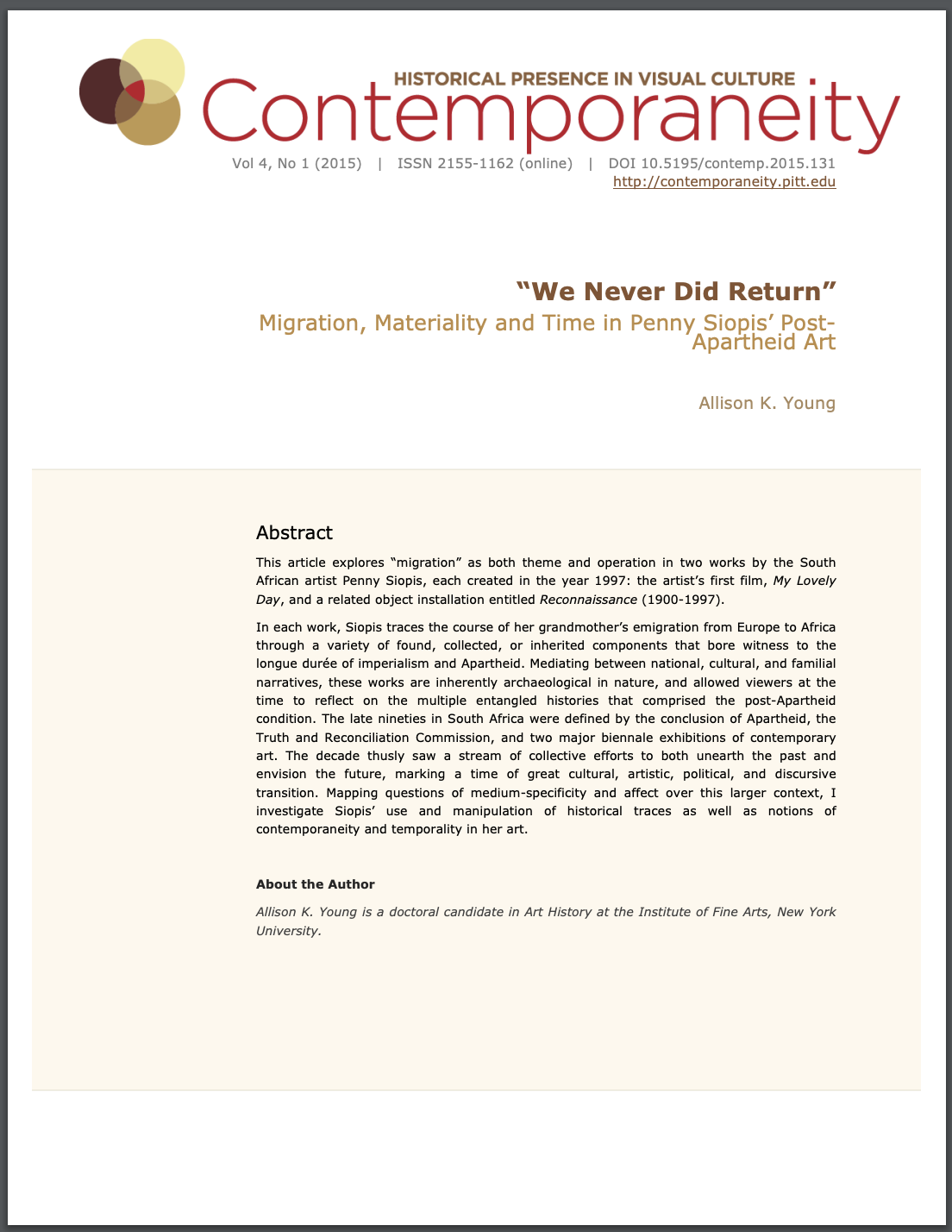'"We Never Did Return": Migration, Materiality and Time in Penny Siopis' Post-Apartheid Art' in Contemporaneity: Historical Presence in Visual Culture, Vol. 4 (2015)
This article explores “migration” as both theme and operation in two works by the South African artist Penny Siopis, each created in the year 1997: the artist’s first film, My Lovely Day, and a related object installation entitled Reconnaissance (1900-1997).
In each work, Siopis traces the course of her grandmother’s emigration from Europe to Africa through a variety of found, collected, or inherited components that bore witness to the longue durée of imperialism and Apartheid. Mediating between national, cultural, and familial narratives, these works are inherently archaeological in nature, and allowed viewers at the time to reflect on the multiple entangled histories that comprised the post-Apartheid condition. The late nineties in South Africa were defined by the conclusion of Apartheid, the Truth and Reconciliation Commission, and two major biennale exhibitions of contemporary art. The decade thusly saw a stream of collective efforts to both unearth the past and envision the future, marking a time of great cultural, artistic, political, and discursive transition. Mapping questions of medium-specificity and affect over this larger context, I investigate Siopis’ use and manipulation of historical traces as well as notions of contemporaneity and temporality in her art.
Click here to view the full article.
This article explores “migration” as both theme and operation in two works by the South African artist Penny Siopis, each created in the year 1997: the artist’s first film, My Lovely Day, and a related object installation entitled Reconnaissance (1900-1997).
In each work, Siopis traces the course of her grandmother’s emigration from Europe to Africa through a variety of found, collected, or inherited components that bore witness to the longue durée of imperialism and Apartheid. Mediating between national, cultural, and familial narratives, these works are inherently archaeological in nature, and allowed viewers at the time to reflect on the multiple entangled histories that comprised the post-Apartheid condition. The late nineties in South Africa were defined by the conclusion of Apartheid, the Truth and Reconciliation Commission, and two major biennale exhibitions of contemporary art. The decade thusly saw a stream of collective efforts to both unearth the past and envision the future, marking a time of great cultural, artistic, political, and discursive transition. Mapping questions of medium-specificity and affect over this larger context, I investigate Siopis’ use and manipulation of historical traces as well as notions of contemporaneity and temporality in her art.
Click here to view the full article.
